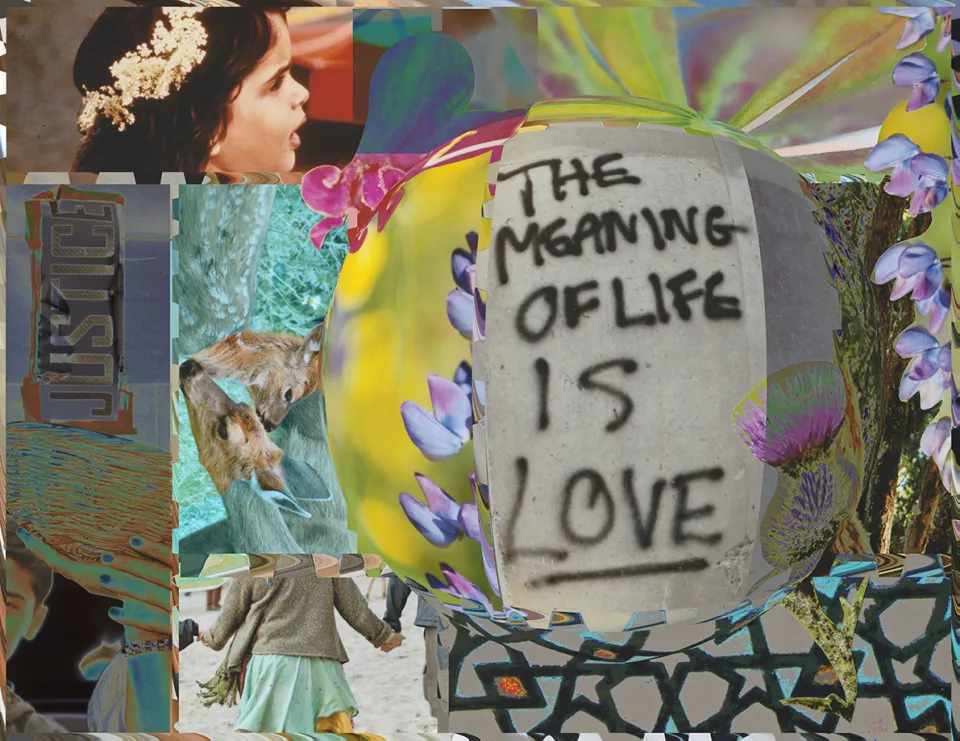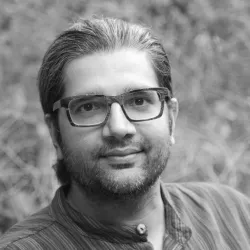
Our Hearts as a Map for Change
Notes on Heart Cognition as a Radically Divergent Way of Knowing & Being
By Rajdeep S. Gill and Fabiola Nabil Naguib
Many people across diverse fields of research, policy, activism and art are increasingly thinking, writing and creating with regards to the unjust state of the world, the dynamics that sustain it, and ways of transforming our imaginations, ethics, and actions. It is heartening that more of us are awakening to the reality that we are all in this plethoric mess together, and wanting to be a part of local and global changes needed in all aspects of society and our ways of being a part of the biosphere.

As part of the endeavour of thinking about and acting for change, we often come across the “XYZ’s” for change and the espousing of the “right ways” to think about and work for change. One way or another, many of us have our ideas about why change happens so slowly, what will make more rapid and comprehensive change and what changes we need to prioritize to actually contribute to any. Is it anti-colonial thought and practice? Is it political will? Is it sharing privilege and access? Is it intersectionality and self-education? Is it reimagining our institutions? Is it rethinking our economic system? Is it ecological literacy and justice? The options of how to and where to focus our energies on change-making are endless.
There is value in different analyses and, vitally, the need for recognizing and supporting diverse, different and divergent ways that each of us can make our world and our ways of living and being more conscious and just. There are specific ecologies of consideration that are less discussed in arenas where there is relative access to dominant social capital and amplification of voice, varied as the geographies of privilege and discourse may be in different societal sectors. During the decades that both of us have been working for change, we have observed that love or loving consideration is often undervalued or deemed irrelevant to academic, activist, artworld and literary contexts.
We invite you to inquire: What if love was more consciously, openly and widely activated as a methodology for change? What if we energized our most profound feelings and knowings, rewilding our hearts, as a map for self and world inquiry? Each of us will have our own particular entry points to these questions, whether we find them off the mark or integral. Over the course of our relationship as life co-journeyers and colleagues, we have come to pair loving consideration as a philosophy-practice with deep social and ethical inquiry. Over time, we have come to experience, activate and explore love, not only as a personal force but as a dynamic and expansive public methodology, weaving together the socio-political, ecological, philosophical, creative and spiritual. As part of articulating the public and connective ethics of love, we have coined the concept of heart cognition and will briefly unfold some of its contours.
We live in a capitalist-opportunist global social context that overwhelmingly normalizes and rewards various forms of harm and destruction. From ableism to transphobia, misogyny to racism, exploitation to occupations, animal cruelty to environmental degradation and mass extinction, we are inundated with violence. Awakening and maintaining our heart cognition involves continually resensitizing our humanity to counter anesthetizing affects and effects of disconnection and violence. Heart cognition can deeply inform intellectual understandings of inequalities and suffering. It not only extends the profound opportunities that emotional and relational literacy carry, it offers an integrative terrain upon which to consider and embody empathy, compassion and radical consideration of (and for) diverse realities and experiences.
Heart cognition can be life-altering, urging us to probe and act from a deeper ecology within, challenging us to reflect beyond our rationalizations, reactivity or cognitive and ethical dissonance. This often calls for a kind of revolution within that embraces radically honest self and world inquiry. This inward and outward examination can be challenging, requiring us to examine well beyond our comforts, exploring individual and collective fallibilities, complacencies and complicities that are incongruent with our values and/or contentment.
Heart cognition is a divergent form of awareness that can attune us not only to ways of living and being that are iniquitous or incongruent but also to what is individually and collectively liberatory. Essential knowledge of both injustice and liberation resides in the integrated considerations of love, connectivity and ethics, a larger living commons of the heart, something that could even be postulated as the site of the uncolonizable. This commons of the heart can awaken us in profound ways to the intricate and awe-inspiring webs of interconnection and interrelationship that animate life. This intimate experience of the fabric of aliveness, a sacred gift shared with humans by generous waters, flora and fauna, and generative soils and skies, can elicit a fierce yearning for and efforts towards mutual dignity and flourishing. By inhabiting ways that honour the sacredness of each other and all life, we activate an ecology within that visibilizes enormous possibilities for visioning, accountability and change.


